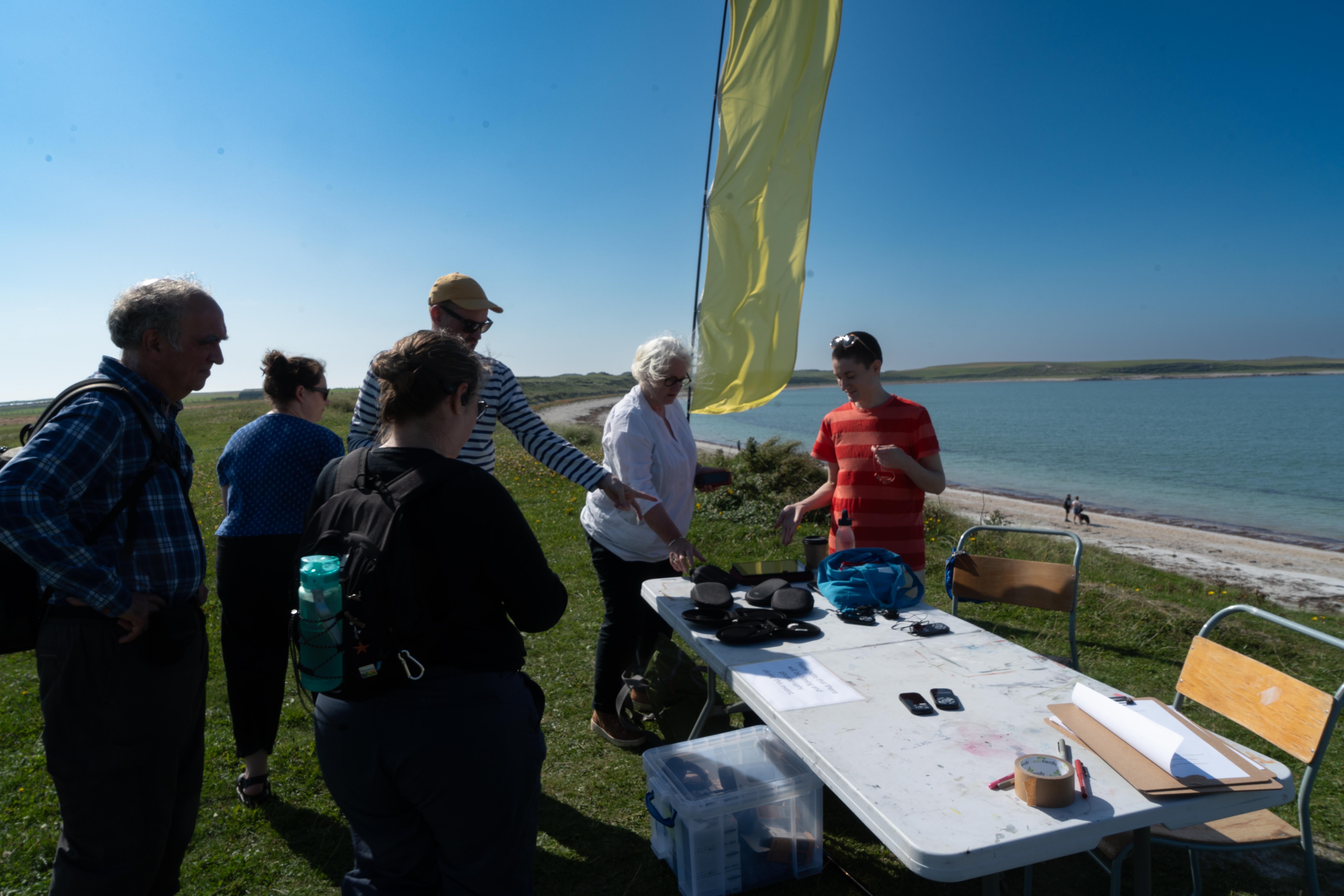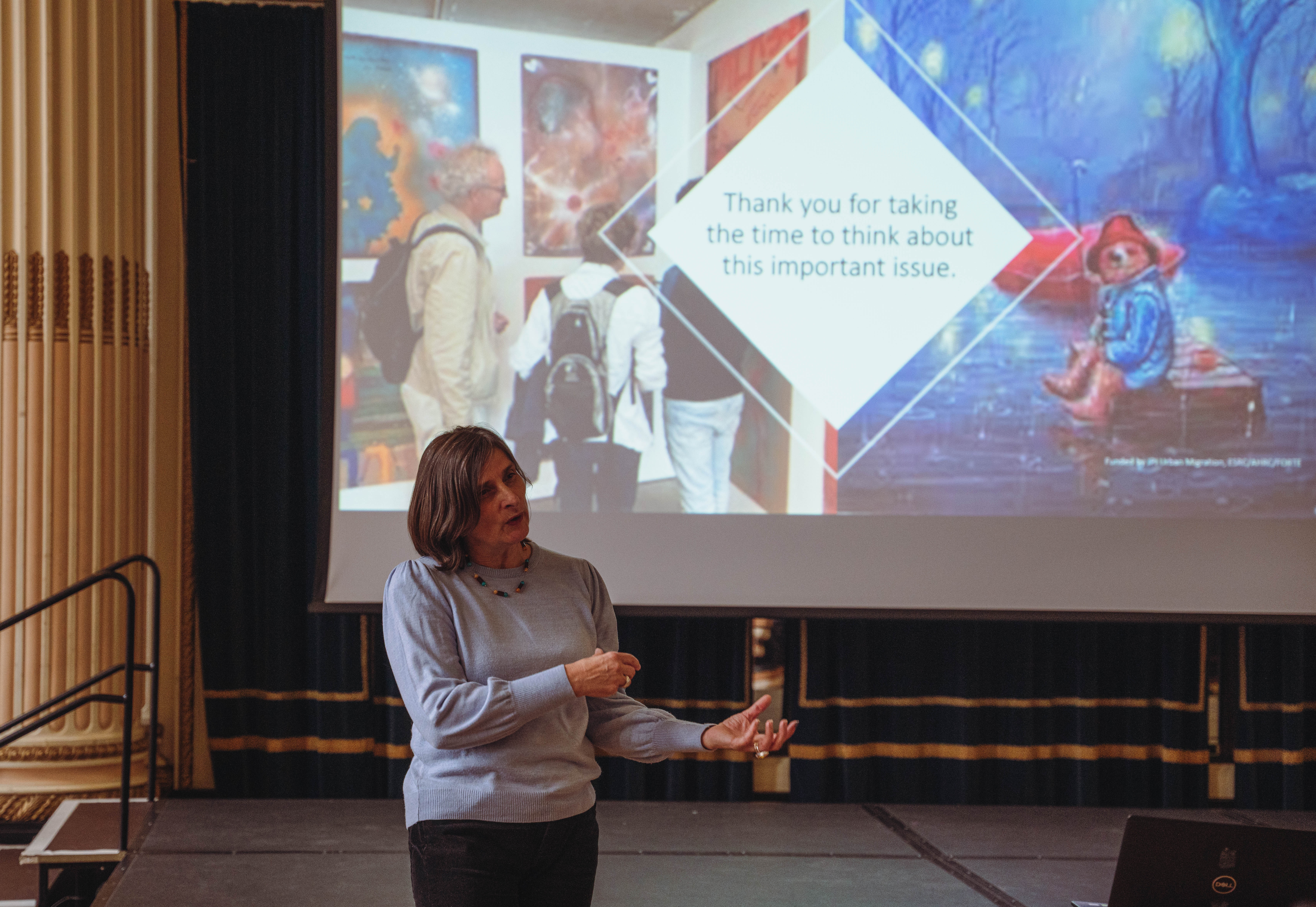Creating a participatory research culture
How our public engagement team manage research England funds to support excellence in participatory research methods.
Published 24 Jun 2024
Research England first provided support for participatory research through allocated funds in 2021. As an institution, we have been on a journey over the last three years, exploring what methods work best to involve the public in our work and how we can create a community that learn from others.
To this end, we have funded some exciting projects over the last three years. These projects have led to real change for individuals and communities. Although the scale of the projects varies, they all share a fundamental commitment to widening the pool of people involved in research and sharing the decision-making process with others.
 Duncan MacLeod working with communities in the Scottish Highlands to create two geolocative soundwalks.
Duncan MacLeod working with communities in the Scottish Highlands to create two geolocative soundwalks.
Amplifying voices that are seldom heard
Participatory research should provide opportunities for individuals from all backgrounds to better understand the work of universities and contribute to finding solutions for societal issues.
Joanna Mcintyre has a strong record of working alongside organisations that support young refugees. She used her grant to explore best practices for refugee education alongside Refugee Education UK. This project fits the remit for the scheme as the methodology involved learners with asylum-seeking and refugee backgrounds helping to shape and carry out the study. Outputs include toolkits, roadmaps for educational provision and resources aimed at raising awareness of the issues faced amongst the public. An insight into the issues this community of learners face is outlined in this blog, hosted on the Hub for Education for Refugees in Europe website.
Joanna Lockwood applied to create networks and co-create resources to support those caring for young people with suicidal behaviour. On this project, she worked with a charity organisation called Harmless as well as their carers to identify their needs and priorities and develop assets that provided appropriate, timely and targeted information and support. The project put in place, a steering group and parent network to shape this work and agree a long-term plan for collaboration.
Other groups reached through the funds have included survivors of sexual and gender-based violence in Uganda, adults in temporary housing and neurodivergent employees.
 Joanna Mcintyre speaking to attendees at an event raising awareness of issues that impact refugees.
Joanna Mcintyre speaking to attendees at an event raising awareness of issues that impact refugees.
The place based agenda
The place based agenda is gaining importance as universities are called upon to act as anchor institutions in their regions. This fund can support activity that happens in any location, but welcomes bids that respond to the specific needs of a community or locality.
Mike Clifford ran a project locally, in partnership with Tiger Community Enterprise, to explore economical ways of cooking during the cost of living crisis. He held a series of workshops where people experimented with making thermal cook bags, discussed healthy eating and devised and tested recipes to see what worked best.
Chris King expanded the Nottingham Caves project to include collecting oral histories from local residents. By training volunteers in interview techniques participants were able to help gather data as well as share their own experiences. Stories gathered looked at how caves are used today, as places for entertainment as well as acting as a historical record. These recordings have been deposited with Manuscripts and Special Collections and will be accessible to all once catalogued.
As an example of funded place-based work outside of the region, Duncan MacLeod ran a successful project working with communities in the Scottish Highlands to create two geolocative soundwalks and a series of sonic postcards that were presented as a series of listening events. Workshops allowed members of the public and school pupils to reconnect with their local landscape and celebrate the Gaelic language through sound. The sound art created through these workshops on Uist can be accessed through Soundcloud.
 Image from a cookery workshop, organised as part of Joanna Stocks' project.
Image from a cookery workshop, organised as part of Joanna Stocks' project.
Bridging disciplines
Participatory research often brings together different disciplines to explore how to translate research for the public. We are supportive of projects that commission creatives or employ creative techniques to explore STEM.
Rob Layfield ran a bioarchaeology project with Norton Priory Museum Trust, hosting a community dig to uncover artefacts then using advanced scientific techniques to answer questions raised by the group. Community archaeologists were involved in the whole process of analysis and questioning, rather than handing finds over to a professional. Outputs included a co-created exhibition and a new lesson plan for school visits.
Joanna Stocks worked with an artist to co-create art to promote and explain her study on the effects of diet on the gut microbiome. In order to reach her target community of people from Afro-Caribbean backgrounds, she worked alongside this community to establish the best way to communicate her research to this audience and explain the benefits of getting involved. Her project evolved to including cookery classes in response to local need.
Ever evolving process
Awareness of the need to involve the public in the research cycle is growing, but different disciplines are at different points. We hope the projects above reflect this - some fields have well established protocols and methodologies; others are devising these and therefore projects carry more of a risk. Working in partnership will mitigate these risks and allow researchers to learn from others while sharing their own knowledge.